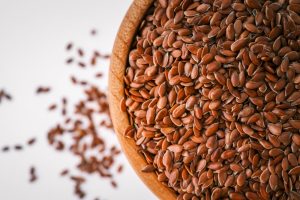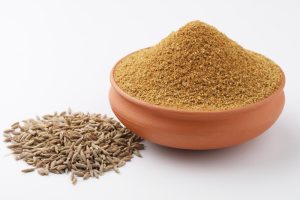Saffron, a spice derived from Crocus sativus L., has been studied for its potential role in weight management, particularly in appetite control and metabolic health.
While research suggests it may help reduce snacking, improve lipid profiles, and slightly decrease waist circumference, its effects are modest and should be combined with a healthy lifestyle for meaningful results—keep reading for a detailed breakdown of the science behind it.
What is Saffron?
Saffron is a highly prized spice derived from the dried stigmas of the Crocus sativus L. flower.
Known for its deep red threads and distinct aroma, it has been used for centuries in cooking, medicine, and dyeing.
While it remains one of the most expensive spices due to its labor-intensive harvesting process, its potential health benefits, including possible effects on weight management, have sparked growing interest.
Saffron as a Spice Derived from Crocus sativus L.
The saffron plant, Crocus sativus L., is a flowering species that thrives in dry climates with well-drained soil.
Each flower produces three delicate red stigmas, which are hand-harvested and dried to create the saffron threads commonly used in cooking and supplements.
This manual harvesting process, requiring thousands of flowers to yield just a single ounce of saffron, contributes to its high cost.
In culinary applications, saffron is known for its rich, earthy, and slightly sweet flavor, along with its ability to impart a golden hue to dishes.
It is a staple in Mediterranean, Middle Eastern, and South Asian cuisines, commonly found in paella, risottos, biryanis, and teas.
Beyond cooking, saffron’s use extends to cosmetics and textiles, where it has historically been valued for its vibrant color and fragrance.
Saffron in Traditional Medicine and Cuisine
Historically, saffron has been revered not just as a culinary ingredient but also as a medicinal remedy across various cultures.
Ancient Persian, Greek, and Ayurvedic texts mention its use for treating ailments ranging from digestive disorders to mood imbalances.
Traditional medicine systems have often prescribed saffron for its purported effects on digestion, sleep, and mood enhancement.
In Persian medicine, saffron was believed to elevate mood and reduce stress, aligning with modern findings on its potential antidepressant properties.
Ayurvedic practitioners used it to support digestion and reproductive health, while in Chinese medicine, it was considered a circulatory stimulant.
These historical uses highlight saffron’s long-standing reputation as a natural remedy, although modern science continues to explore the mechanisms behind these effects.
Bioactive Compounds in Saffron and Their Health Benefits
The potential health benefits of saffron stem from its rich composition of bioactive compounds, primarily crocin, crocetin, safranal, and picrocrocin.
These compounds contribute to saffron’s color, aroma, and potential therapeutic effects.
- Crocin: A carotenoid responsible for saffron’s deep red pigment, crocin is a potent antioxidant that may support cognitive function, mood regulation, and anti-inflammatory processes. Some studies suggest it could also play a role in metabolic health.
- Crocetin: Another carotenoid with antioxidant and anti-inflammatory properties, crocetin has been studied for its effects on lipid metabolism and potential benefits in reducing oxidative stress.
- Safranal: This compound gives saffron its distinctive aroma and has been researched for its potential neuroprotective and antidepressant properties. Some evidence suggests it may contribute to appetite regulation by influencing neurotransmitters.
- Picrocrocin: Responsible for saffron’s slightly bitter taste, picrocrocin is believed to have digestive benefits and may play a role in metabolic regulation.
While these compounds have been linked to various health benefits, including possible effects on appetite control and lipid metabolism, it’s important to recognize that saffron’s impact on weight management is still being researched.
The combination of its bioactive properties and historical medicinal use makes it a unique ingredient, but its role in weight loss should be considered as part of a broader lifestyle approach rather than a standalone solution.
What Science Says About Saffron and Weight Loss
Saffron’s potential role in weight management has gained attention due to its possible effects on appetite, metabolism, and lipid levels.
While research suggests that saffron supplementation may support modest reductions in body weight and waist circumference, findings are mixed, and its effectiveness varies across different populations.
Understanding the current scientific evidence can help set realistic expectations for its use in weight management.
Clinical Research on Saffron for Weight Management
Several clinical studies have explored saffron’s effects on body weight, body mass index (BMI), and metabolic health markers.
The most promising research suggests that saffron supplementation in the range of 30–60 mg per day may contribute to small but meaningful improvements in weight-related outcomes.
One study in overweight adolescents found that 12 weeks of daily saffron supplementation led to reductions in fasting triglycerides and BMI, while also increasing HDL (“good” cholesterol).
These improvements suggest saffron may influence both metabolic health and body composition in younger individuals.
In adult populations, meta-analyses of clinical trials have produced mixed results.
While some studies reported statistically significant reductions in waist circumference and waist-to-hip ratio, overall weight loss outcomes were often not substantial.
However, improvements in lipid profiles, particularly reductions in triglycerides and increases in HDL cholesterol, were more consistent.
These findings indicate that saffron may be beneficial for metabolic health even if its direct effects on weight loss are modest.
The key takeaway from current research is that saffron should be considered a supportive tool rather than a primary driver of weight loss.
While it may aid in appetite control and metabolic regulation, it is not a standalone solution for significant weight reduction.
How Saffron May Influence Weight Loss
Saffron’s potential effects on weight management appear to be linked to several physiological mechanisms.
Rather than directly increasing fat burning or drastically reducing body weight, it may work by addressing underlying factors that contribute to overeating, poor metabolic health, and fat accumulation.
Appetite Regulation
One of the most widely studied aspects of saffron’s impact on weight is its ability to influence appetite.
Some research suggests that saffron may help reduce snacking and emotional eating by modulating neurotransmitters involved in hunger and satiety.
In particular, saffron has been linked to increased serotonin activity, which plays a crucial role in mood and appetite control.
Emotional eating and excessive snacking are major contributors to weight gain, and saffron’s potential to help manage these behaviors could explain its modest effects on body composition.
Participants in clinical studies have reported feeling fuller and experiencing fewer cravings when supplementing with saffron, leading to reduced overall caloric intake.
Lipid Metabolism
Another way saffron may support weight management is through its influence on lipid metabolism.
Studies have indicated that saffron can help lower triglyceride levels and improve the ratio of HDL to LDL cholesterol.
This suggests that while saffron may not directly cause fat loss, it could contribute to a healthier metabolic profile, making weight management more effective when combined with proper nutrition and exercise.
These effects are particularly relevant for individuals with metabolic syndrome or those at risk of cardiovascular disease.
By supporting healthier lipid levels, saffron could help prevent some of the negative metabolic consequences of excess weight.
Glucose Control
The relationship between saffron and blood sugar regulation remains an area of ongoing research.
Some studies suggest that saffron may improve insulin sensitivity and glucose metabolism, while others report minimal or inconsistent effects.
Since poor blood sugar control is linked to weight gain and difficulty losing weight, saffron’s potential role in stabilizing glucose levels could be beneficial.
However, more large-scale studies are needed to confirm its impact in this area.
How Saffron Works: Potential Mechanisms Behind Its Effects
Saffron’s impact on weight management is linked to its influence on appetite, metabolism, and inflammation.
Instead of acting as a direct fat-burning agent, saffron appears to support weight loss by reducing food cravings, improving lipid profiles, and potentially modulating inflammatory responses.
Understanding how these mechanisms work can help determine how saffron fits into an overall weight management strategy.
Appetite and Satiety: Can Saffron Reduce Food Cravings?
One of the most studied effects of saffron is its ability to influence appetite and satiety.
Research suggests that saffron may help regulate hunger by interacting with neurotransmitters that control mood and food intake.
Serotonin and dopamine, two key brain chemicals involved in mood regulation, also play a role in hunger and cravings.
Saffron is believed to enhance serotonin activity, which may contribute to a feeling of fullness and satisfaction after eating.
This could explain why some clinical studies have reported reductions in snacking and emotional eating among participants taking saffron supplements.
Emotional eating—eating in response to stress, boredom, or mood fluctuations—is a common challenge for weight management.
Some studies indicate that saffron supplementation can decrease the frequency of snacking and reduce overall caloric intake by making people feel less compelled to eat out of habit or emotion.
Participants in certain trials reported experiencing fewer cravings and a greater sense of control over their eating patterns.
By potentially improving satiety and reducing impulsive snacking, saffron may help individuals naturally lower their calorie intake without needing to rely on strict dieting.
However, its appetite-regulating effects are not a substitute for mindful eating habits and a balanced diet.
Metabolic Effects: Lipid and Glucose Regulation
Beyond appetite control, saffron has been studied for its impact on metabolic markers, particularly cholesterol and blood sugar levels.
Some evidence suggests that saffron may improve lipid metabolism by lowering triglycerides and increasing levels of HDL (“good” cholesterol).
These changes can be beneficial for individuals struggling with metabolic issues related to excess weight.
Triglycerides are a type of fat in the blood that, when elevated, are associated with obesity and an increased risk of cardiovascular disease.
In certain clinical trials, saffron supplementation has been linked to lower fasting triglyceride levels, which suggests it may contribute to a healthier lipid profile.
Similarly, an increase in HDL cholesterol is considered beneficial, as HDL helps remove excess cholesterol from the bloodstream.
Saffron’s potential role in glucose regulation is less clear.
Some research suggests that saffron may help improve insulin sensitivity and stabilize blood sugar levels, but findings have been inconsistent.
Since poor blood sugar control can lead to weight gain and difficulty losing weight, any positive impact saffron has in this area would be valuable.
However, due to the mixed nature of the evidence, saffron should not be relied upon as a primary tool for blood sugar regulation.
Instead, it should be seen as a complementary aid to a well-balanced diet and healthy lifestyle habits.
Anti-Inflammatory and Antioxidant Properties
Chronic inflammation is closely linked to obesity and metabolic dysfunction, and saffron contains several bioactive compounds with known anti-inflammatory and antioxidant properties.
Crocin, crocetin, and safranal—three of saffron’s key compounds—are thought to reduce oxidative stress and inflammation, which may play a role in improving overall metabolic health.
Oxidative stress occurs when there is an imbalance of free radicals and antioxidants in the body, leading to cell damage.
This can contribute to insulin resistance, fat accumulation, and other metabolic issues.
Saffron’s antioxidants may help counteract this process by neutralizing free radicals and reducing inflammation.
While these anti-inflammatory effects are promising, the extent to which they directly influence weight loss remains unclear.
Saffron’s ability to lower inflammation may help create a more favorable environment for weight management, but it is unlikely to produce significant fat loss on its own.
The best approach is to combine saffron with other anti-inflammatory foods and lifestyle changes to maximize its potential benefits.
Should You Take Saffron for Weight Loss?

Saffron has shown promise in supporting appetite control and metabolic health, but its effects on weight loss are modest.
If you’re considering saffron supplementation, it’s important to understand how it works, what results to expect, and whether it’s a good fit for your individual needs.
While saffron may provide some support for weight management, it should be used as part of a balanced approach rather than as a standalone solution.
Saffron Supplementation: What You Need to Know
When taken in appropriate doses, saffron supplements appear to be safe for most people and may help curb snacking, improve lipid profiles, and support overall metabolic health.
The commonly recommended dosage for weight management and appetite control is 30–60 mg per day.
Most clinical studies investigating saffron’s effects on weight have used this range, and it is considered effective while minimizing the risk of side effects.
Higher doses—especially exceeding 5 grams per day—should be strictly avoided.
At very high levels, saffron can cause toxicity, dizziness, digestive discomfort, and other adverse effects.
However, such high doses are rarely found in commercially available supplements.
Most reputable saffron supplements are standardized to contain specific concentrations of crocin and safranal, the bioactive compounds responsible for saffron’s potential health benefits.
If you have underlying medical conditions or take medications (especially antidepressants, blood pressure medications, or blood thinners), consult your healthcare provider before using saffron.
Although saffron’s natural properties are generally well tolerated, interactions with certain drugs could pose risks.
What to Expect: Realistic Benefits vs. Misleading Claims
It’s essential to set realistic expectations when taking saffron for weight management.
While some studies have shown that it can help reduce appetite and improve metabolic markers, saffron is not a quick-fix weight loss solution.
It does not significantly boost fat burning or lead to rapid weight reduction.
Instead, it works by reducing food cravings and snacking behaviors, which may help lower calorie intake over time.
For the best results, saffron should be combined with:
- A balanced, calorie-conscious diet that supports overall health.
- Regular physical activity to enhance metabolism and fat loss.
- Good sleep and stress management since emotional eating is often linked to stress and poor rest.
While saffron supplementation can be a helpful tool, it won’t replace fundamental weight loss strategies.
Research suggests that its effects are modest but meaningful when used consistently alongside a healthy lifestyle.
Who Might Benefit the Most?
Saffron supplementation may be particularly beneficial for certain individuals who struggle with specific weight-related challenges:
- People who experience emotional eating and frequent cravings: Since saffron may help regulate mood and serotonin levels, it can support those who turn to food for emotional comfort.
- Individuals with high triglycerides or poor lipid profiles: Studies indicate saffron may improve lipid metabolism, which can benefit people with metabolic concerns.
- Anyone looking for small but sustainable weight management support: While saffron won’t dramatically change body weight on its own, it can be a useful tool for curbing snacking and maintaining a healthier dietary pattern.
How to Integrate Saffron into Your Lifestyle for Weight Loss
Incorporating saffron into your daily routine can be done in multiple ways, whether through food, supplements, or a combination of both.
The key is to use saffron consistently while maintaining a balanced lifestyle that includes proper nutrition, regular exercise, and mindful eating habits.
Understanding how to maximize its benefits can help you integrate saffron effectively and sustainably into your weight management plan.
Using Saffron in Cooking
One of the easiest ways to introduce saffron into your routine is by adding it to your meals.
Saffron’s distinct flavor and color make it a versatile ingredient in various dishes.
It pairs well with both savory and sweet foods, allowing for multiple ways to enjoy its potential benefits.
Some ideas for incorporating saffron into your meals include:
- Saffron tea: Steep a few saffron threads in hot water for 10–15 minutes and drink it as a warm, soothing beverage. You can add a squeeze of lemon or a small amount of honey for taste.
- Rice dishes: Adding saffron to rice gives it a rich golden color and enhances flavor. It works particularly well in dishes like paella, biryani, or risotto.
- Soups and stews: A small amount of saffron can add depth and warmth to broths, making it a great addition to lentil soups, chicken stews, and seafood chowders.
- Smoothies: Blend saffron with ingredients like Greek yogurt, berries, and a dash of cinnamon for a nutritious, appetite-satisfying drink.
- Golden milk: Mix saffron with warm milk (or plant-based alternatives), turmeric, and a touch of cinnamon for an anti-inflammatory bedtime drink.
While using saffron in cooking allows you to enjoy its flavor and health benefits, the concentration of its active compounds in food is much lower compared to supplements.
If you’re looking for a more standardized intake, a saffron supplement may be a better option for weight management.
Saffron Supplements: Choosing the Right One
For those seeking consistent, research-backed dosages, saffron supplements are a practical choice.
However, not all supplements are created equal, so knowing what to look for is crucial.
When selecting a saffron supplement, consider the following:
- Standardized extract: Look for supplements that contain affinage-extracted saffron with a standardized amount of crocin and safranal, as these are the key bioactive compounds.
- Proper dosage: The most common dosage used in studies for appetite control and weight management ranges from 30 to 60 mg per day. Avoid supplements with unclear dosage information.
- Third-party testing: Choose brands that have been tested by independent labs to ensure purity, potency, and the absence of contaminants. Third-party certifications help verify that the product contains what it claims.
- No unnecessary additives: Avoid products with artificial fillers, excessive binders, or unnecessary ingredients that may dilute saffron’s potency.
Low-quality saffron supplements can be ineffective or even adulterated, so investing in a trusted brand ensures you’re getting a product that aligns with the clinical studies supporting saffron’s potential benefits.
Pairing Saffron with Other Weight Management Strategies
Saffron alone will not lead to significant weight loss.
However, when combined with healthy lifestyle choices, it can be a useful tool in supporting your weight management goals.
- Balanced nutrition and portion control: While saffron may help reduce cravings, pairing it with nutrient-dense, whole foods will amplify its effects. Focus on lean proteins, fiber-rich vegetables, and healthy fats to support satiety and overall health.
- Regular physical activity: Exercise plays a key role in fat metabolism and overall energy balance. Even moderate activity, such as walking or strength training, can enhance saffron’s benefits by improving metabolic function.
- Managing stress and emotional eating: Since saffron is believed to positively influence serotonin levels, it may help reduce stress-induced cravings. Pairing it with mindfulness techniques, such as meditation or journaling, can further support better eating habits.
Conclusion
Saffron may offer modest support for weight management by helping to reduce cravings, improve lipid profiles, and support overall metabolic health.
However, it works best as a complement to a balanced diet, regular exercise, and mindful eating habits rather than as a standalone solution.
If used consistently and correctly, saffron can be a useful tool in a well-rounded weight management strategy.







